Matt Quail asked us a question via Twitter to @esaoperations based on last week’s ATV fuel consumption article:
@esaoperations do you need the yaw manoeuvres because the solar panels are fixed, and you need to be nose-to-Sun the whole time?
— Matt Quail (@spudbean) January 22, 2015
Once again, ESA’s Laurent Arzel took a short time off calculating flight dynamics for ATV to offer some illumination on the matter:
ATV’s solar panels are not fixed but can only rotate around their longitudinal axis. See the time-lapse video below for an example of how ATV-5’s solar panels rotate while attached to the International Space Station.
However, rotating on one axis alone is not sufficient to keep the solar panels perpendicular to the Sun. To make sure they gather as much energy as possible from our star, they would need to rotate left-right as well, also called ‘yaw steering’.
Combining the solar panel rotation (or roll) with yaw steering allows the ATV operations team to keep the solar panels absorbing as much energy as possible.
Two sides to the story
Lastly, it is not ATV’s nose that must be kept pointing to the Sun, but rather the opposite: its backside. In fact most images we see of ATV in space show its front (as it approaches the International Space Station) which then shows a view looking at the back (non-light-sensitive sides) of the solar panels.
This is one of the few images we found of an ATV in flight with its solar panels showing their solar-sensitive sides:
This whole issue was dealt with in more detail in an earlier ESA Technology Image of the Week; click on the image to read more:

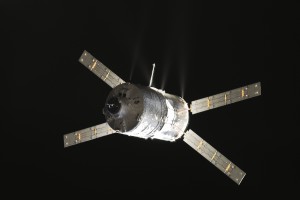
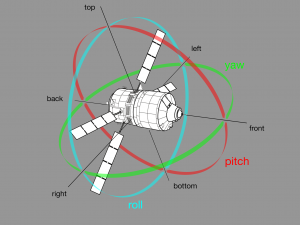
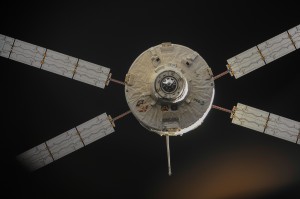
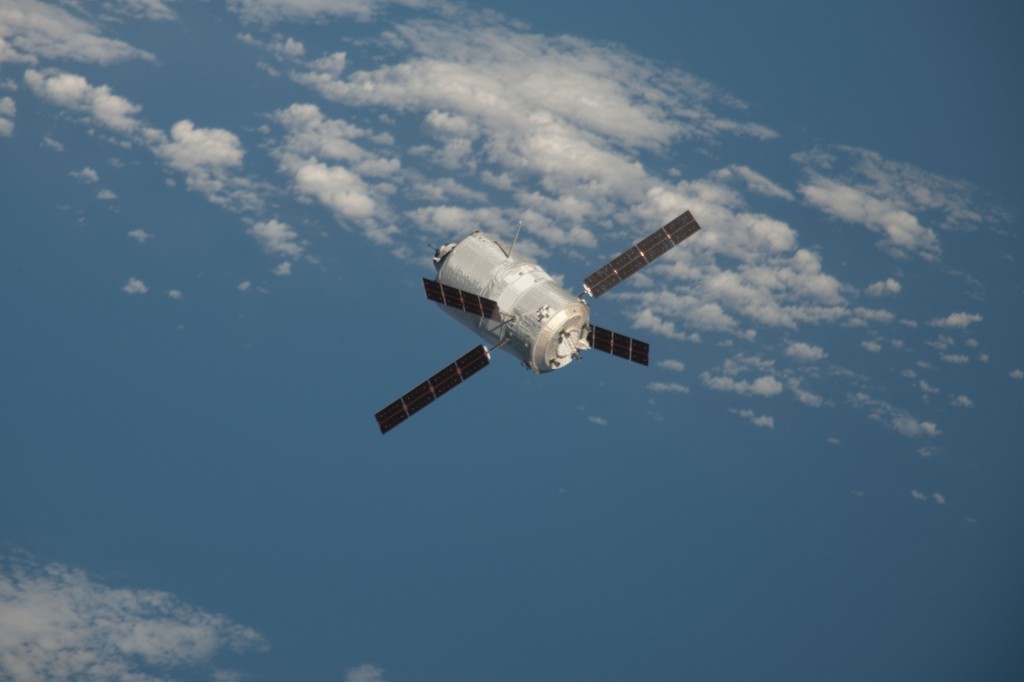
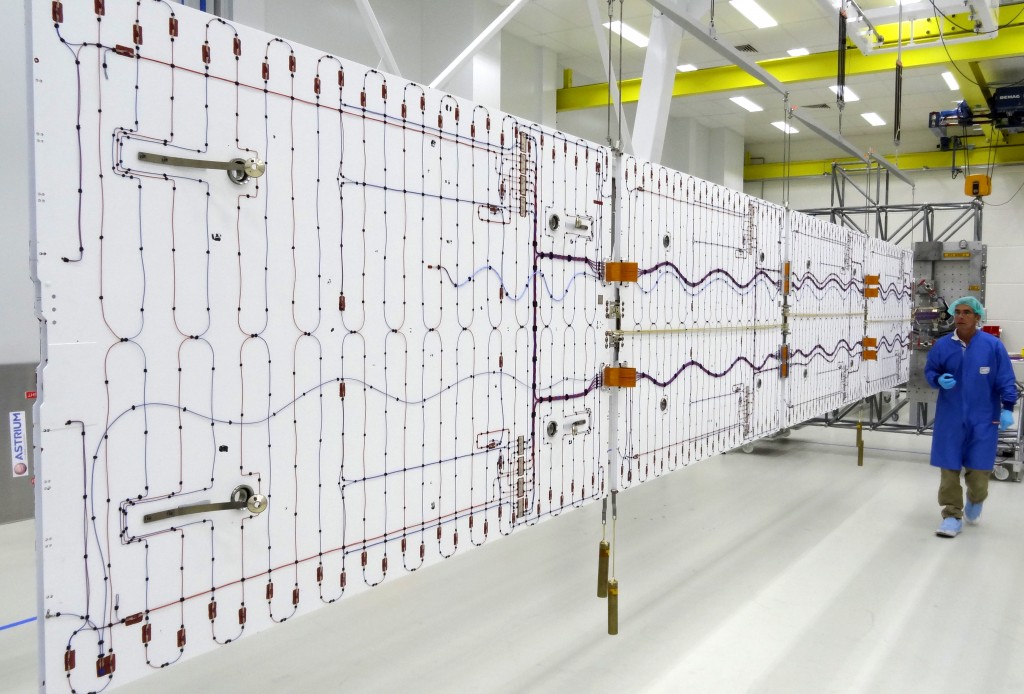
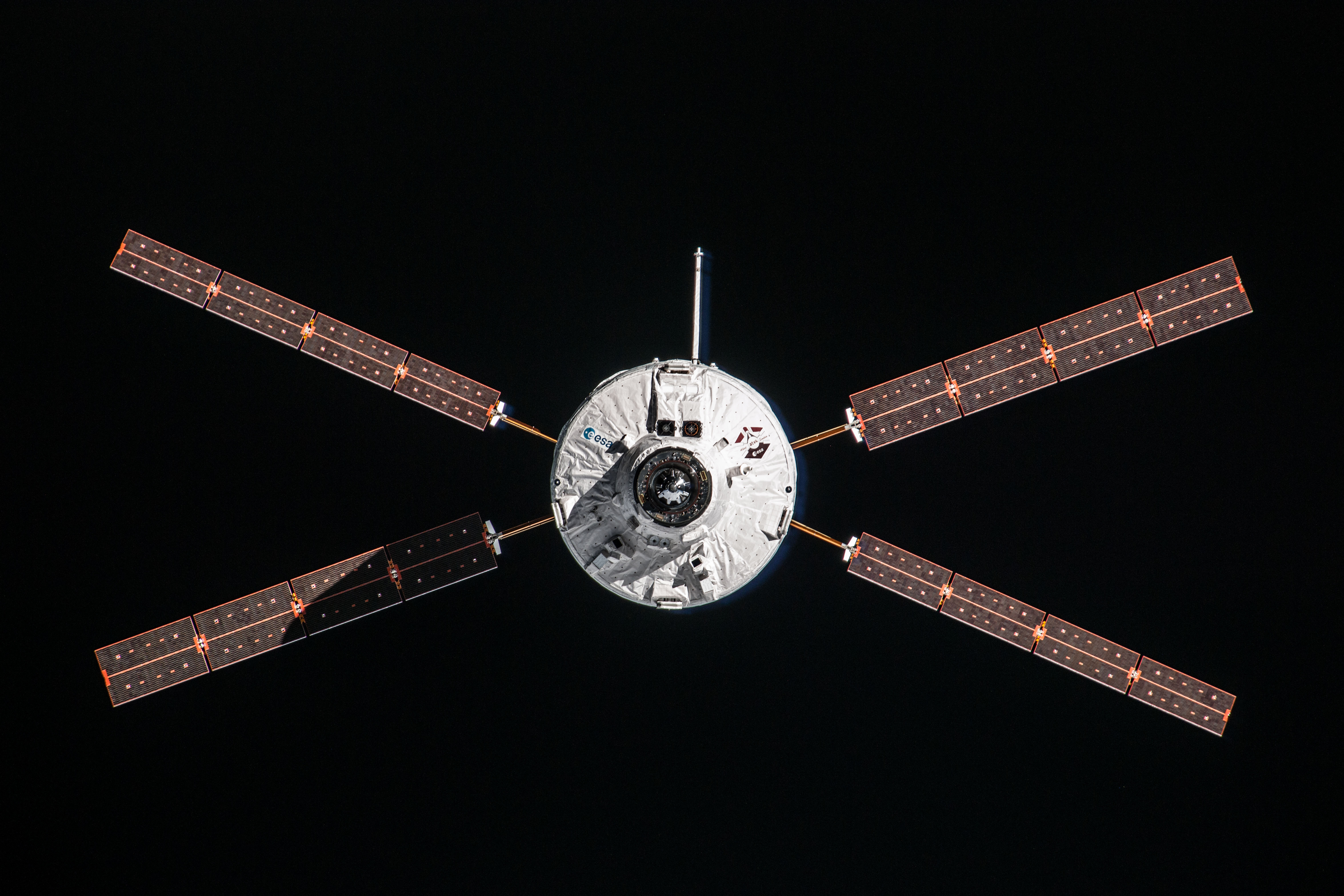 Automated Transfer Vehicle page
Automated Transfer Vehicle page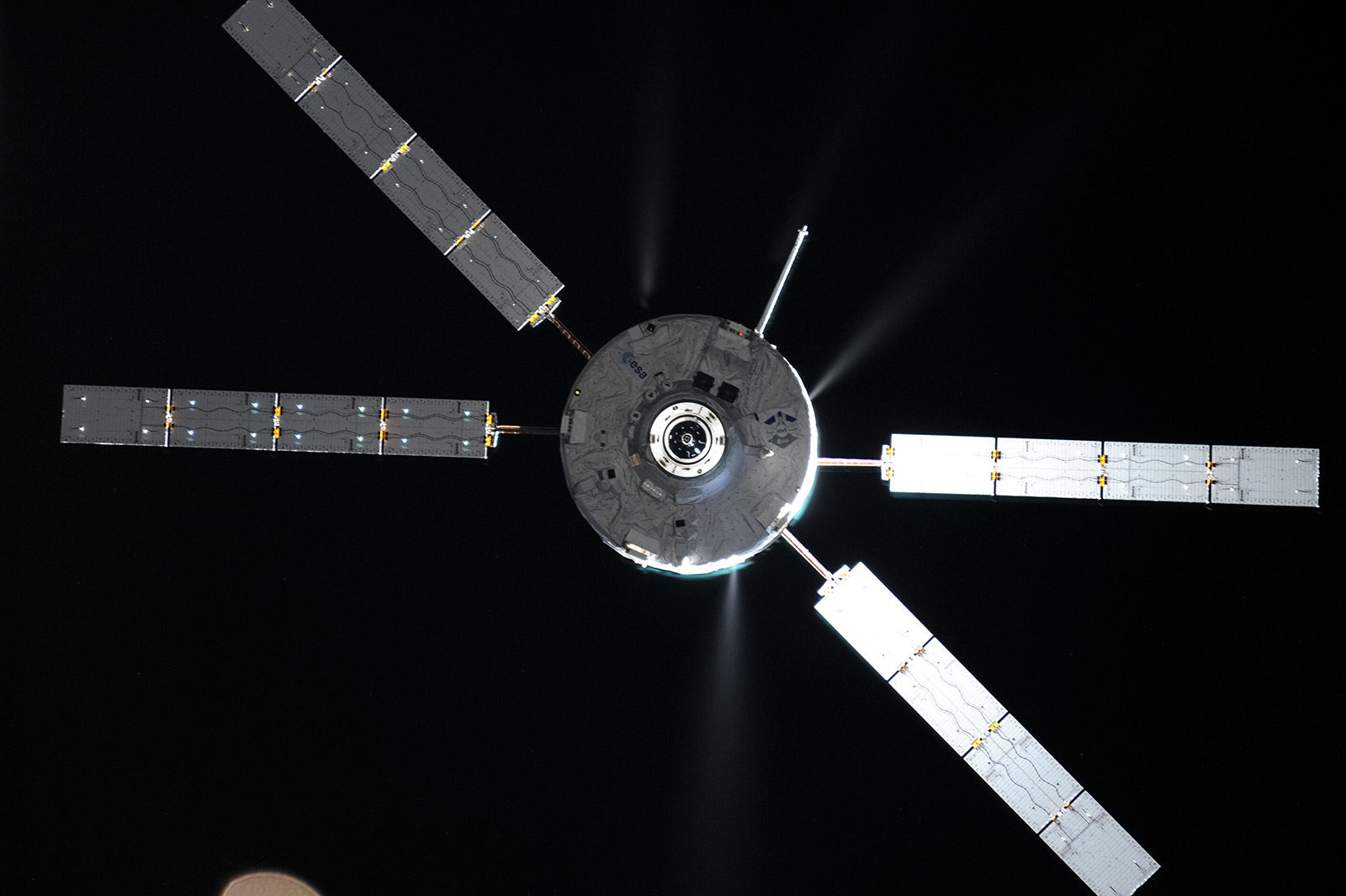 ATV blog archive
ATV blog archive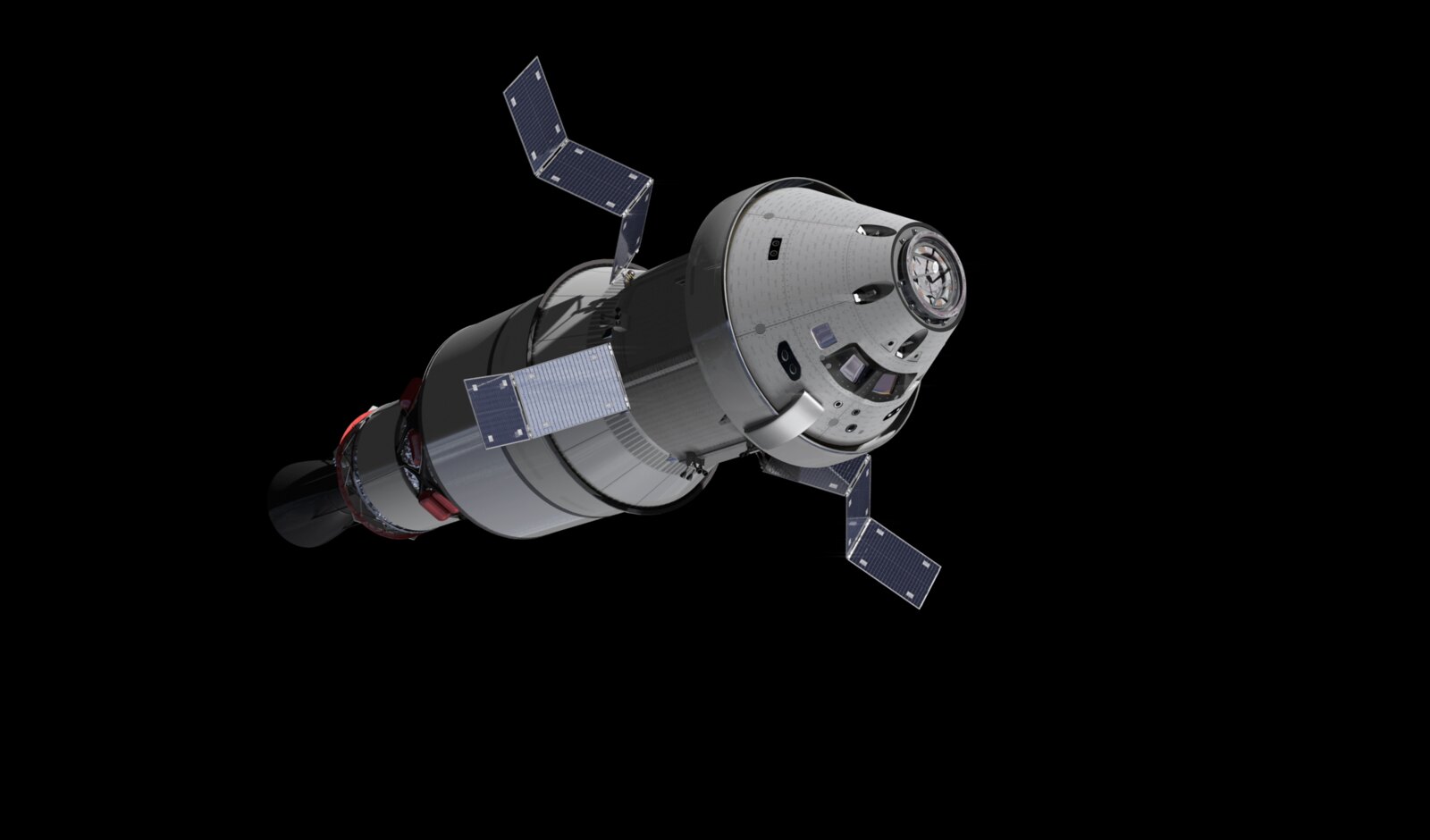
Discussion: no comments